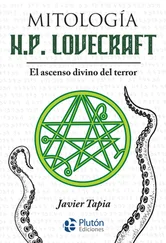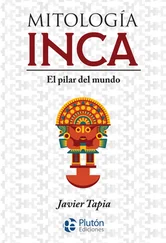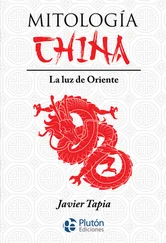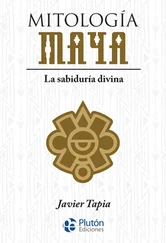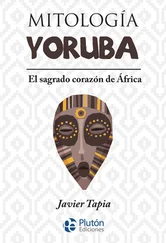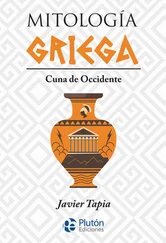By 1960, the Greek Orthodox congregation of Detroit’s East Side had yet another new building to worship in. Assumption had moved from Vernor Highway to a new site on Charlevoix. The erection of the Charlevoix church had been an event of great excitement. From the humble beginnings of the storefront on Hart Street, to the respectable but by no means splashy domicile off Beniteau, Assumption was finally going to get a grand church building. Many construction firms bid for the job, but in the end it was decided to give it to “someone from the community,” and that someone was Bart Skiotis.
The motives behind building the new church were twofold: to resurrect the ancient splendor of Byzantium and to show the world the financial wherewithal of the prospering Greek American community. No expense was spared. An icon painter from Crete was imported to render the iconography. He stayed for over a year, sleeping in the unfinished structure on a thin mat. A traditionalist, he refrained from meat, alcohol, and sweets, in order to purify his soul and receive divine inspiration. Even his paintbrush was by the book, made from the tip of a squirrel’s tail. Slowly, over two years, our East Side Hagia Sophia went up, not far from the Ford Freeway. There was only one problem. Unlike the icon painter, Bart Skiotis had not worked with a pure heart. It turned out that he had used inferior materials, siphoning the remaining cash into his personal bank account. He laid the foundation incorrectly, so that it wasn’t long before cracks began to branch over the walls, scarring the iconography. The ceiling leaked, too.
Within the substandard construction of the Charlevoix church, literally upon a shaky foundation, I was baptized into the Orthodox faith; a faith that had existed long before Protestantism had anything to protest and before Catholicism called itself catholic; a faith that stretched back to the beginnings of Christianity, when it was Greek and not Latin, and which, without an Aquinas to reify it, had remained shrouded in the smoke of tradition and mystery whence it began. My godfather, Jimmy Papanikolas, took me from my father’s arms. He presented me to Father Mike. Smiling, overjoyed to be center stage for once, Father Mike cut a lock of my hair and tossed it into the baptismal pool. (It was this part of the ritual, I later suspected, that was responsible for the fuzzy quality of our font’s surfaces. Years and years of baby hair, stimulated by the life-giving water, had taken root and grown.) But now Father Mike was ready for the dunking. “The servant of God, Calliope Helen is baptized in the Name of the Father, Amen . . . “ and he pushed me under for the first time. In the Orthodox Church, we don’t go in for partial immersion; no sprinkling, no forehead dabbing for us. In order to be reborn, you have to be buried first, so under the water I went. My family looked on, my mother seized with anxiety (what if I inhaled?), my brother dropping a penny into the water when no one was looking, my grandmother stilling her fan for the first time in weeks. Father Mike pulled me up into the air again—“and of the Son, Amen”—and dunked me under once more. This time I opened my eyes. Chapter Eleven’s penny, in freefall, glinted through the murk. Down it sank to the bottom where, I now noticed, lots of things were collected: other coins, for instance, hairpins, somebody’s old Band-Aid. In the green, scummy, holy water, I felt at peace. Everything was silent. The sides of my neck tingled in the place where humans once had gills. I was dimly aware that this beginning was somehow indicative of the rest of my life. My family were around me; I was in the hands of God. But I was in my own, separate element, too, submerged in rare sensations, pushing evolution’s envelope. This knowledge whizzed through my mind, and then Father Mike pulled me up again—“and of the Holy Spirit, Amen . . .” One more dunking to go. Down I went and back up again, into light and air. The three submersions had taken a while. In addition to being murky, the water was warm. By the third time up, therefore, I had indeed been reborn: as a fountain. From between my cherubic legs a stream of crystalline liquid shot into the air. Lit from the dome above, its yellow scintillance arrested everyone’s attention. The stream rose in an arc. Propelled by a full bladder, it cleared the lip of the font. And before my nouno had time to react, it struck Father Mike right in the middle of the face.
Suppressed laughter from the pews, a few old ladies gasping in horror, then silence. Disgraced by his own partial immersion—and dabbing himself like a Protestant—Father Mike completed the ceremony. Taking the chrism on his fingertips, he anointed me, marking the sign of the Cross on the required places, first my forehead, then eyes, nostrils, mouth, ears, breast, hands, and feet. As he touched each place, he said, “The seal of the gift of the Holy Spirit.” Finally he gave me my First Communion (with one exception: Father Mike didn’t forgive me for my sin).
“That’s my girl,” Milton crowed on the way home. “Pissed on a priest.”
“It was an accident,” Tessie insisted, still hot with embarrassment. “Poor Father Mike! He’ll never get over it.”
“That went really far ,” marveled Chapter Eleven.
In all the commotion, no one wondered about the engineering involved.
Desdemona took my reverse baptism of her son-in-law as a bad omen. Already potentially responsible for her husband’s stroke, I had now committed a sacrilege at my first liturgical opportunity. In addition, I had humiliated her by being born a girl. “Maybe you should try guessing the weather,” Sourmelina teased her. My father rubbed it in: “So much for your spoon, Ma. It sort of pooped out on you.” The truth was that in those days Desdemona was struggling against assimilationist pressures she couldn’t resist. Though she had lived in America as an eternal exile, a visitor for forty years, certain bits of her adopted country had been seeping under the locked doors of her disapproval. After Lefty came home from the hospital, my father took a TV up to the attic to provide some entertainment. It was a small black-and-white Zenith, prone to vertical shift. Milton placed it on a bedside table and went back downstairs. The television remained, rumbling, glowing. Lefty adjusted his pillows to watch. Desdemona tried to do housework but found herself looking over at the screen more and more often. She still didn’t like cars. She covered her ears whenever the vacuum cleaner was on. But the TV was somehow different. My grandmother took to television right away. It was the first and only thing about America she approved of. Sometimes she forgot to turn the set off and would awaken at 2A.M. to hear “The Star-Spangled Banner” playing before the station signed off.
The television replaced the sound of conversation that was missing from my grandparents’ lives. Desdemona watched all day long, scandalized by the love affairs on As the World Turns . She liked detergent commercials especially, anything with animated scrubbing bubbles or avenging suds.
Living on Seminole contributed to the cultural imperialism. On Sundays, instead of serving Metaxa, Milton fixed cocktails for his guests. “Drinks with the names of people,” Desdemona complained to her mute husband back in the attic. “Tom Collins. Harvey Wall Bang. This is a drink! And they are listening to music on the, how you say, the hi-fi. Milton he puts this music, and they drink Tom Collins and sometimes they are, you know, dancing, one on one, men together with the women. Like wrestling.”
What was I to Desdemona but another sign of the end of things? She tried not to look at me. She hid behind her fans. Then one day Tessie had to go out and Desdemona was forced to baby-sit. Warily, she entered my bedroom. Taking cautious steps, she approached my crib. Black-draped sexagenarian leaned down to examine pink-swaddled infant. Maybe something in my expression set off an alarm. Maybe she was already making the connections she would later make, between village babies and this suburban one, between old wives’ tales and new endocrinology . . . Then again, maybe not. Because as she peered distrustfully over the rail of my crib, she saw my face—and blood intervened. Desdemona’s worried expression hovered above my (similarly) perplexed one. Her mournful eyes gazed down at my (equally) large black orbs. Everything about us was the same. And so she picked me up and I did what grandchildren are supposed to do: I erased the years between us. I gave Desdemona back her original skin.
Читать дальше
Конец ознакомительного отрывка
Купить книгу


